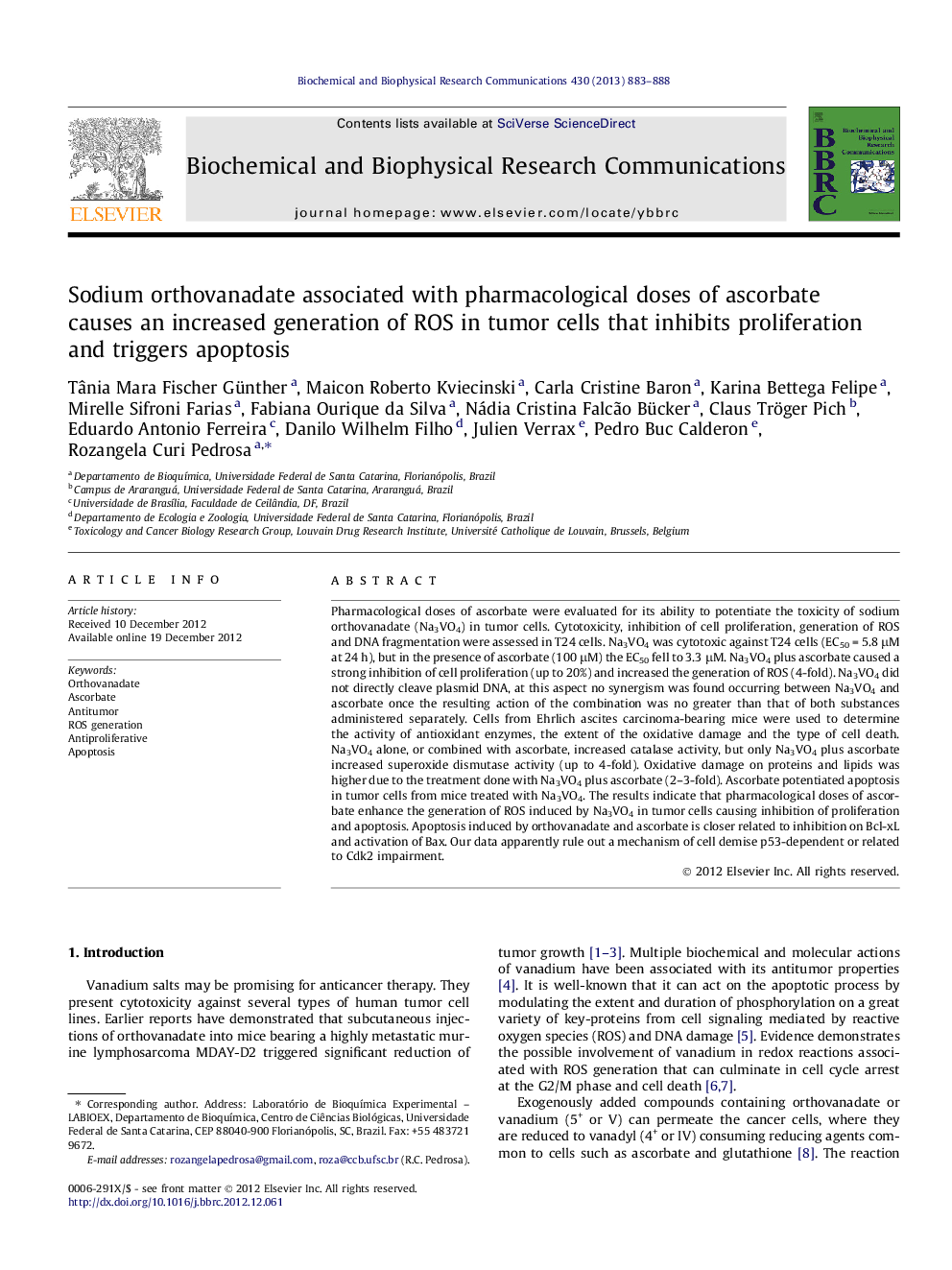| Article ID | Journal | Published Year | Pages | File Type |
|---|---|---|---|---|
| 10759839 | Biochemical and Biophysical Research Communications | 2013 | 6 Pages |
Abstract
Pharmacological doses of ascorbate were evaluated for its ability to potentiate the toxicity of sodium orthovanadate (Na3VO4) in tumor cells. Cytotoxicity, inhibition of cell proliferation, generation of ROS and DNA fragmentation were assessed in T24 cells. Na3VO4 was cytotoxic against T24 cells (EC50 = 5.8 μM at 24 h), but in the presence of ascorbate (100 μM) the EC50 fell to 3.3 μM. Na3VO4 plus ascorbate caused a strong inhibition of cell proliferation (up to 20%) and increased the generation of ROS (4-fold). Na3VO4 did not directly cleave plasmid DNA, at this aspect no synergism was found occurring between Na3VO4 and ascorbate once the resulting action of the combination was no greater than that of both substances administered separately. Cells from Ehrlich ascites carcinoma-bearing mice were used to determine the activity of antioxidant enzymes, the extent of the oxidative damage and the type of cell death. Na3VO4 alone, or combined with ascorbate, increased catalase activity, but only Na3VO4 plus ascorbate increased superoxide dismutase activity (up to 4-fold). Oxidative damage on proteins and lipids was higher due to the treatment done with Na3VO4 plus ascorbate (2-3-fold). Ascorbate potentiated apoptosis in tumor cells from mice treated with Na3VO4. The results indicate that pharmacological doses of ascorbate enhance the generation of ROS induced by Na3VO4 in tumor cells causing inhibition of proliferation and apoptosis. Apoptosis induced by orthovanadate and ascorbate is closer related to inhibition on Bcl-xL and activation of Bax. Our data apparently rule out a mechanism of cell demise p53-dependent or related to Cdk2 impairment.
Related Topics
Life Sciences
Biochemistry, Genetics and Molecular Biology
Biochemistry
Authors
TËnia Mara Fischer Günther, Maicon Roberto Kviecinski, Carla Cristine Baron, Karina Bettega Felipe, Mirelle Sifroni Farias, Fabiana Ourique da Silva, Nádia Cristina Falcão Bücker, Claus Tröger Pich, Eduardo Antonio Ferreira, Danilo Wilhelm Filho,
